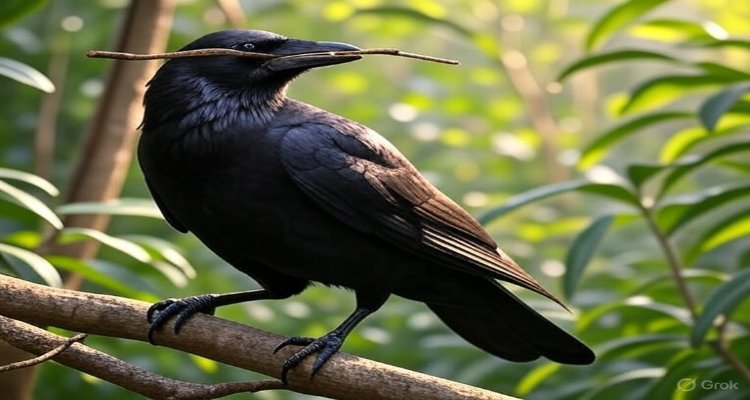The Birds That Refuse to Follow Nature’s Rules

“Some birds defy natural instincts — refusing migration, shirking parenting, or inventing tools. Discover why these avian rebels are reshaping evolution.”
Introduction: Breaking the Sky’s Script
Nature has long been celebrated for its patterns, from the synchronized migration of starlings to the nesting rituals of penguins. Yet, some birds defy these unwritten rules of survival, challenging what scientists once thought was instinct hardwired over millions of years. These unconventional species are rewriting the narrative of avian behavior — and forcing us to ask whether “the rules of nature” are more flexible than we imagined.
Context & Background: The Blueprint of the Flock
For centuries, naturalists observed birds as meticulous followers of routine. Seasonal migration routes, territorial mating dances, synchronized roosting — all were seen as predictable, almost clockwork-like. Charles Darwin himself relied on bird behavior to illustrate natural selection. But as field research widened and urban environments expanded, reports grew of birds seemingly going rogue.
From cuckoos shirking parenting responsibilities by leaving eggs in other nests, to pigeons abandoning migration altogether in human-dense cities, the rulebook is being rewritten. These rebellions raise questions: Are birds adapting to survive, or have they always harbored streaks of defiance hidden beneath evolutionary norms?
Main Developments: Rebels of the Avian World
Several species have become case studies in breaking expectations:
-
The Brood Parasites: The common cuckoo lays its eggs in the nests of other birds, outsourcing childcare entirely. In doing so, it disrupts the host species, sometimes endangering their broods. This centuries-old tactic challenges the assumption that parental care is universal in the animal kingdom.
-
The Stay-At-Home Migrants: Climate shifts and urban food availability have led some geese and pigeons to abandon traditional migratory paths. Instead of exhausting journeys, these birds choose permanent residency near human habitats, questioning the idea that migration is instinct, not choice.
-
Nocturnal Songbirds: Normally diurnal, some thrushes and warblers have started singing at night in cityscapes awash with artificial light. Biologists see this as both an adaptation to noise pollution and a collapse of time-bound behavior long thought immutable.
-
Inventive Tool Users: New Caledonian crows fashion hooks from twigs to extract insects, behaving more like primates than typical birds. This leap into tool-making unsettles old divisions between instinct-driven animals and “intelligent” mammals.
These “rule-breakers,” whether driven by environment, survival, or ingenuity, showcase how fragile the boundaries of natural law can be.
Expert Insight & Public Reaction
Ornithologists argue that what looks like rebellion may actually be adaptation. Dr. Michelle Santos, an avian ecologist at Cambridge, notes: “Birds aren’t breaking rules—they’re rewriting them in response to a rapidly changing planet. What appears to us as defiance is really resilience.”
At the same time, birdwatchers and enthusiasts express fascination and worry. Online communities spotlight photos of urban crows opening trash bins, sparrows nesting in car vents, and owls hunting under neon lights. Social platforms brim with both awe at this ingenuity and concern over whether it signals ecological imbalance.
Impact & Implications: Redefining “Natural”
The implications go beyond bird behavior. These shifts challenge scientific models of predictability. If birds can quickly overturn instincts honed over millennia, it reflects a larger story of adaptability under climate stress, urbanization, and human influence.
For ecosystems, the consequences are mixed. Some birds thrive by bending rules, but others — especially those impacted by brood parasites or artificial competition — may decline. For humans, the sight of birds evolving right before our eyes offers both an ecological warning and a strange comfort: life adapts, even when we disrupt it.
Conclusion: Freedom in the Feathered World
The birds that refuse to follow nature’s rules reveal a deeper truth: nature is not rigid, but experimental, even rebellious. From cuckoos freeloading their way through parenting to tool-wielding crows, these defiers remind us that the natural world is not a fixed script, but an improvisation. As climate change accelerates and urban worlds expand, their defiance may not be an exception, but the new norm.
Disclaimer :This article is for informational and educational purposes only. All examples are based on verified ornithological research and observational studies. It does not substitute for academic publication or professional ecological advice.










